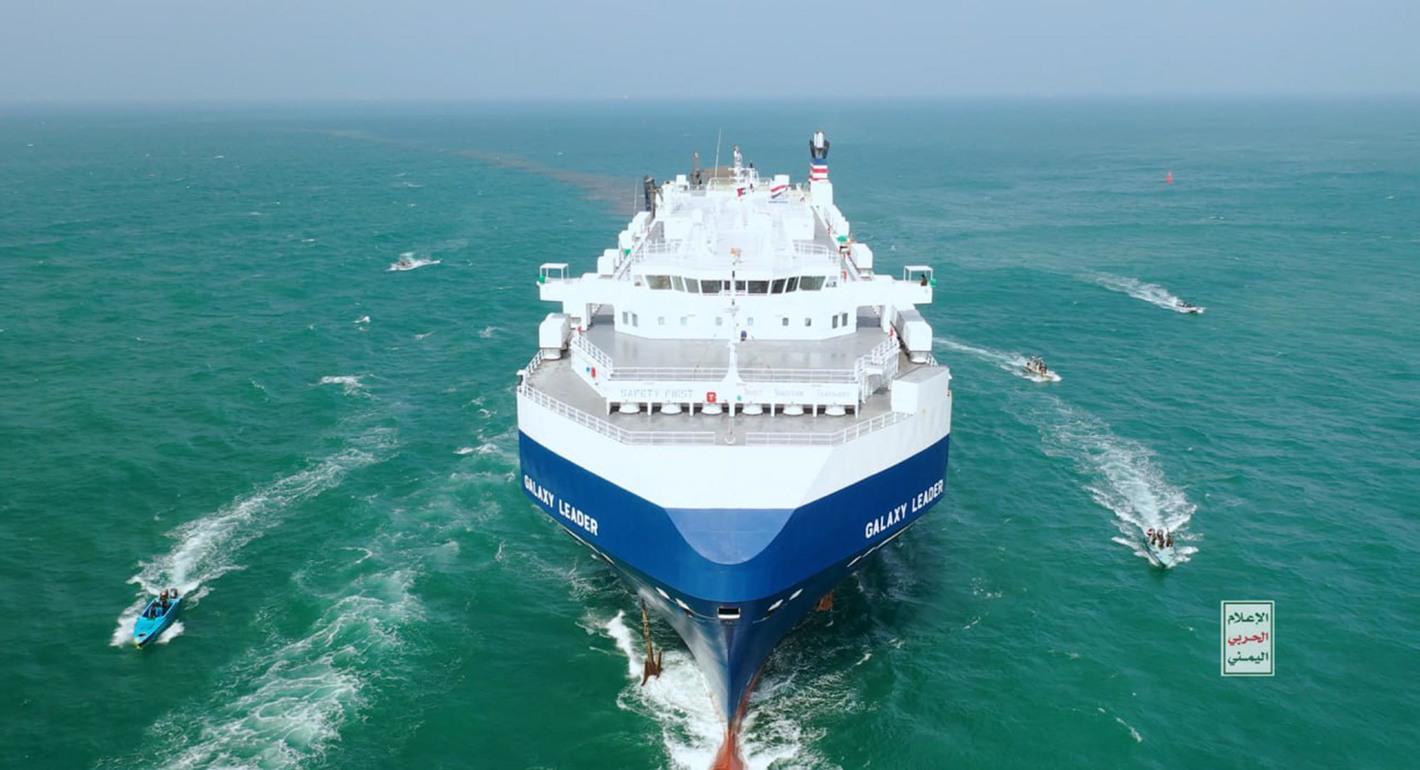Six months into the conflict, Hamas continues to challenge the Israeli army—raising questions about Israel’s ability to eradicate the group.
Reham Owda
{
"authors": [
"Eleonora Ardemagni"
],
"type": "commentary",
"blog": "Sada",
"centerAffiliationAll": "",
"centers": [
"Carnegie Endowment for International Peace"
],
"collections": [
"The Gaza War and Regional Reverberations"
],
"englishNewsletterAll": "",
"nonEnglishNewsletterAll": "",
"primaryCenter": "Carnegie Endowment for International Peace",
"programAffiliation": "",
"programs": [
"Middle East"
],
"projects": [],
"regions": [],
"topics": []
}
Source: Getty
Alongside the Sudanese war, Houthi and Hamas aerial attacks against Israel threaten to upend Saudi Arabia’s geostrategic goals along its western coast.
In recent years, Red Sea security has become a key pillar of Saudi Arabia’s domestic and foreign policy. Driven by geostrategic ambitions and plans to diversify its oil economy, the kingdom has strengthened security relations in the area by building alliances with Israel and coastal African countries, and by de-escalating conflicts with Iran and Yemen’s Iranian-backed Houthis. There have been efforts made to modernize the Royal Saudi Naval Forces, particularly the Western Fleet which operates in the Red Sea, and to tighten naval cooperation with Egypt. Multilateral initiatives have seen Riyadh at the forefront—including the Saudi-led Red Sea Council, and U.S.-led task forces deployed in the Red Sea to counter smuggling and train local navies.
Stability in the Red Sea region is crucial to many Vision 2030 projects. These include NEOM—the new urban area in the northwestern Tabuk province, that includes a floating port city on the Red Sea coast and luxury island destinations—as well as The Red Sea, a tourism development project. For the traditional oil economy, the Yanbu terminal is also critical for Saudi Arabia as an alternative to the Hormuz strait: in 2018, the kingdom added three million barrels per day to its export capacity from its western coast.
Against this backdrop, Israel’s war in Gaza and the ongoing war in Sudan have shifted the security equilibrium in the Red Sea, posing new challenges for Saudi Arabia. Since October 7, Houthi militias have launched several aerial attacks towards Israel, and to a lesser extent, against U.S. targets in the region. Through their control of Hodeida, the main Yemeni port on the Red Sea, the Houthis have also targeted Israeli-related shipping in the southern Red Sea. In early 2023, Saudi Arabia started bilateral talks with the Houthis to reach a ceasefire in Yemen. But the war in Gaza has re-emboldened Houthis’ military ambitions, with increased fighting in central Yemen and along the kingdom’s border, as occurred in the Saudi province of Jazan.
Houthi attacks may endanger Tiran and Sanafir, two small islands situated at the mouth of the Gulf of Aqaba that now are part of the kingdom’s territory. In 2016, Egypt ceded Tiran and Sanafir to Riyadh, a move that required Israel’s approval in 2022 since the islands were part of the 1979 Camp David peace accord between Cairo and Tel Aviv. Saudi Arabia has sought control of the islands to enhance its maritime influence—particularly in the Gulf of Aqaba, a trade gateway for Jordan and Israel—with the possibility of developing port and military facilities. But given their proximity to Eilat, the Israeli port city repeatedly targeted by Houthi and Hamas strikes, these Saudi territories may be caught in the middle of the conflict.
The war in Sudan has also threatened Saudi security aims in the Red Sea. Since fighting erupted in 2023, Riyadh has been engaged in mediation efforts together with the United States. But in September, Port Sudan witnessed unprecedented street violence between the Saudi-supported Sudanese army and a local tribal militia. Although port traffic hasn’t been disrupted so far, this could embolden rivalries for the control of the vital trade route.
While Riyadh would welcome the end of hostilities in Gaza and Sudan, Saudi-Israeli normalization remains the missing piece in the kingdom’s geostrategic mosaic in the Red Sea. Currently put on hold, normalization would not only facilitate Israeli-Saudi defense cooperation, but also upgrade Riyadh’s defense capabilities through integration with the United States. Due to a combination of economic and security reasons, Saudi-Israeli normalization remains matter of when, rather than if, as suggested by plans for the India-Middle East-Europe Economic Corridor project, signed by Riyadh and Tel Aviv in September 2023. Vision 2030 is based upon connectivity: Riyadh needs regional stability, maritime security, and a broad set of alliances to fulfil its economic targets, all of which are challenged as long as the Red Sea remains a military flashpoint.
Eleonora Ardemagni is a senior associate research fellow at the Italian Institute for International Political Studies (ISPI) and a teaching assistant at the Catholic University of Milan.
Carnegie does not take institutional positions on public policy issues; the views represented herein are those of the author(s) and do not necessarily reflect the views of Carnegie, its staff, or its trustees.
Six months into the conflict, Hamas continues to challenge the Israeli army—raising questions about Israel’s ability to eradicate the group.
Reham Owda
Iran’s adventurism may push Damascus to commit to Saudi-led efforts and reintegrate into the Arab fold.
Faysal Abbas Mohamad
By unconditionally supporting Israel’s war, Germany is increasingly isolating itself on the global stage.
Lena Obermaier
Saudi Arabia has long been perceived in the Arab world as a champion of the Palestinian cause, but developments over the past two decades suggest an imminent transformation.
Safa Nasser
The story of Reham, a young mother sheltering in Rafah, illustrates the impact of Israel’s war on women and families.
Shahd Safi